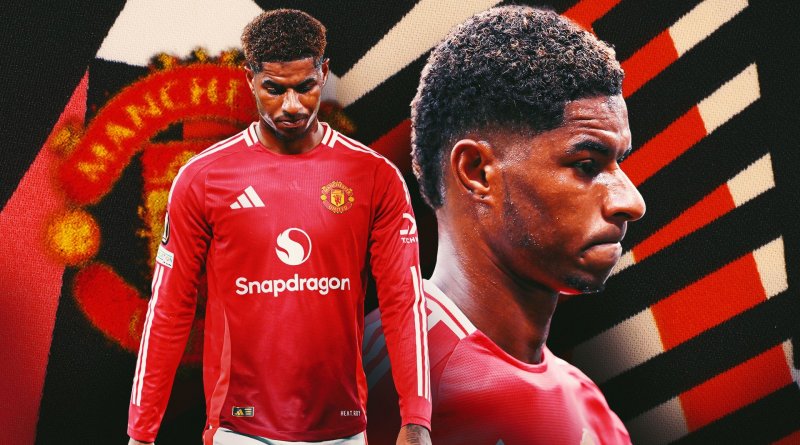Marcus Rashford Transfer Stalls, United Face Tough Choices
Marcus Rashford transfer uncertainty is the biggest headache of Manchester United’s summer, and every day that passes without resolution tightens the financial and sporting knot around Old Trafford.
Marcus Rashford Transfer: Why the Market Is So Lukewarm
Rashford is only 26, an England international and a proven Premier League scorer, yet interest has been tepid since his Aston Villa loan expired in May. In conversations with intermediaries, clubs across Europe cite three sticking points: a £55 million valuation, a basic wage in excess of £250,000 per week and questions over attitude after last season’s bust-up with Ruben Amorim. United hoped the forward’s pace and profile would spark an auction. Instead, sporting directors are circling but not bidding.
Summer in Marbella, Future in Limbo
While his peers are at the Euros or on post-season holidays, Rashford has booked a private training camp in Marbella. Sources close to the player insist he feels “lighter, sharper and hungrier” than at any point since 2022. The regime mirrors the personal boot camps that previously reignited his form, yet the absence of concrete offers means he is training without a target. Reporting to Carrington on 7 July would be a PR nightmare for all involved, but the calendar is unforgiving.
The Amorim Factor Still Casts a Shadow
Ruben Amorim publicly insists there is “no problem,” but insiders recall a total breakdown in December that saw Rashford demoted and eventually loaned out. A reunion would undermine preseason harmony and hamper tactical planning; Amorim wants fresh wide forwards who press aggressively from minute one. The manager’s uncompromising style leaves little room for passengers, making another loan the default escape route unless a permanent buyer emerges.
Loans Are a Short-Term Plaster, Not a Cure
United have used the loan market to park high-earning misfits before—think Alexis Sánchez or Donny van de Beek—but continually subsidising salaries is an unsustainable drain. If Rashford joins, say, Roma or Inter on a temporary deal, the Red Devils might still shoulder 40-50% of his wages. That scenario frees up a squad number yet locks funds that could be reinvested in a new striker or centre-back. With financial-fair-play limits tightening, United’s hierarchy are wary of repeating past mistakes.
Lowering the Fee May Be Inevitable
Executives initially set a £55 m floor to deter opportunistic bids, banking on Premier League wealth. However, Tottenham have prioritised younger, cheaper targets, Newcastle are wary of salary structure, and Chelsea’s pursuit of Viktor Gyökeres rules them out. In continental Europe, only Paris Saint-Germain can match the asking price, but Luis Enrique prefers wingers who hug the touchline rather than drift centrally. As June edges toward July, the logic of trimming the valuation to £40 m grows stronger.
Potential Suitors If the Price Drops
• Paris Saint-Germain: monitoring but unconvinced at current cost.
• AC Milan: interested if United pay part of the wage.
• Bayern Munich: focus on a No.9 but could pivot if Leroy Sané leaves.
• Atlético Madrid: Diego Simeone values work rate; attitude concerns linger.
None of these clubs is short of scouting data; they simply need a financial invitation they can accept.
A Wage Restructure Could Unlock the Deal
Marcus Rashford transfer talks have also stumbled over personal terms. A tiered contract featuring a lower basic salary coupled with appearance and goal bonuses would align his earnings with early-career output while rewarding a revival. United may need to compensate the shortfall with a payoff, but long-term savings outweigh the one-off cost.
United’s Wider Squad Management Problem
The Rashford impasse highlights systemic issues. Harry Maguire, Scott McTominay and Mason Greenwood also linger on sizable contracts. Selling academy graduates like Rashford yields pure profit under FFP accounting, so resolving his future is vital before Erik ten Hag’s replacement can reshape the roster. Delay risks another season of half-committed squad members and ballooning wage bills.
Fans Want a Quick Resolution
Supporters remember Rashford’s 30-goal campaign only two seasons ago, but patience erodes when body language sours. Social media polls show 62% backing a sale, 25% preferring a loan and just 13% advocating reintegration. The prevailing mood is clear: clarity over sentiment.
What Happens If No Buyer Appears?
Should the transfer window shut without movement, United face three unpalatable options:
1. Reinstate Rashford and risk dressing-room tension.
2. Banish him to the reserves, paying full wages for zero output.
3. Negotiate a loan on deadline day, absorbing most of his salary.
Each choice carries financial or sporting downsides, underscoring why both club and player must compromise sooner rather than later.
Timeline to Watch
• 7 July: Rashford due at Carrington.
• 15 July: United depart for U.S. tour—decision needed before then.
• 1 August: Majority of continental squads finalise budgets.
• 30 August: Premier League deadline day drama looms.
Marcus Rashford Transfer Deal Needs Realism, Not Pride
For all parties, ego is the final barrier. The player still sees himself among Europe’s elite; United cling to a valuation set when the market was frothier. Bridging that gap demands realism. A structured fee plus add-ons, or a loan with mandatory purchase clause, represents a fair middle ground. Walking away with both sides bruised benefits nobody.
Short Opinion
United must recall that decisive clubs win trophies. Accepting a slightly lower fee now will hurt the balance sheet less than another year of uncertainty. Rashford, meanwhile, should prioritise a tactical fit and fresh start over headline wages. Compromise, not stalemate, is the only route back to relevance for both.
Your global gateway to nonstop football coverage:
Goal Sports News
Share this content:
